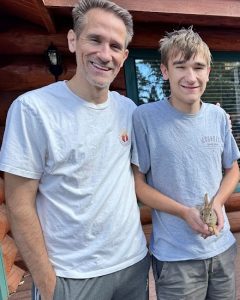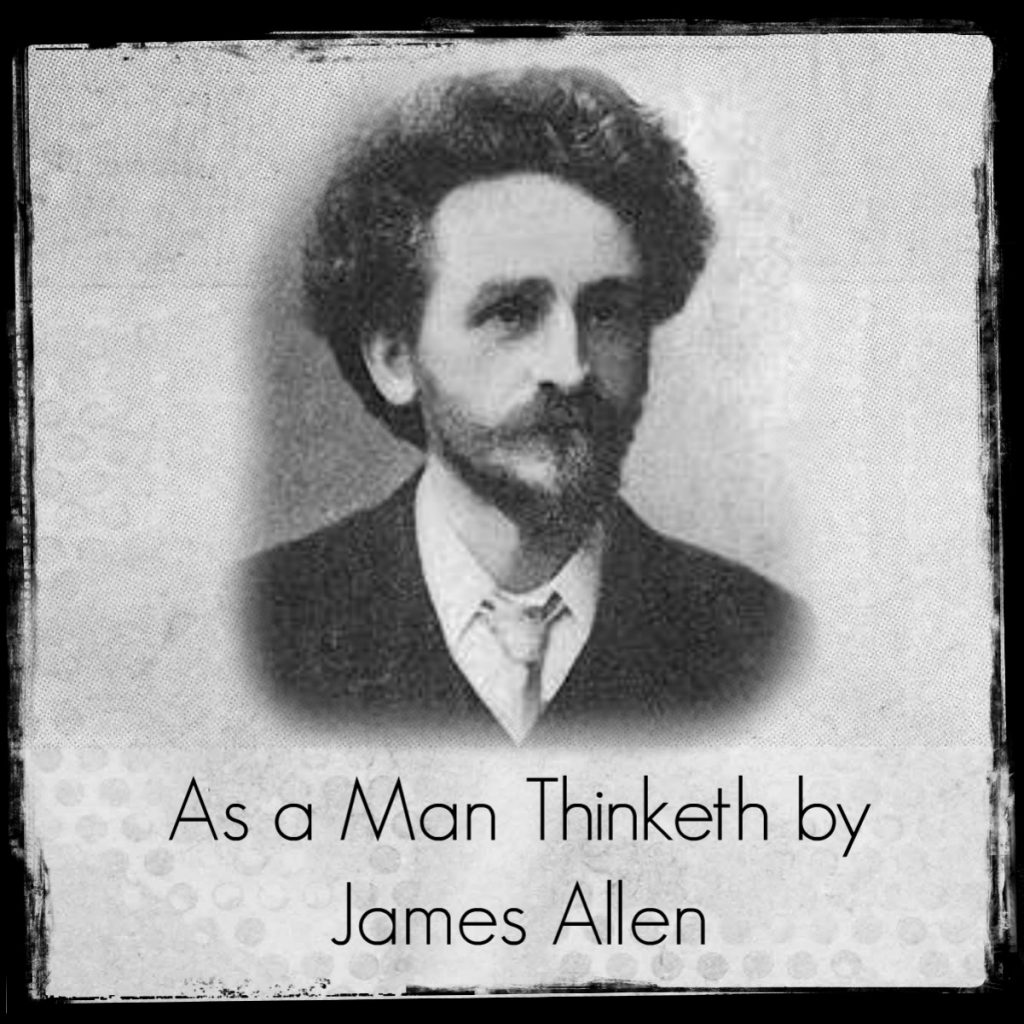This is an archived audio from Garrett White and Garrett B. Gunderson’s Producer Power Hour radio show where Leslie Householder was a guest, long before Gunderson was a New York Times best-selling author, and long before he and Leslie co-authored the sequel to Jackrabbit Factor, Portal to Genius.
Learn about commitment, and getting your mind stretched. Learn more about the natural laws, and how the law of attraction is only one of them. In this raw and personal conversation, Leslie is also asked how she wants to be remembered.
Additional resources mentioned on the audio:
- The Jackrabbit Factor free download
- Hidden Treasures book
- Leslie’s presentation given the next day (video)
TRANSCRIPT:
Announcer: Welcome to the Rare Faith podcast, where the solution to every problem is only an idea away and where the same activity, with just a little more awareness, always yields better results. Award-winning best-selling author, Leslie Householder, brings some of her best information to this inspiring series of life-changing episodes that you won’t want to miss. Show notes for this episode can be found at ararekindoffaith.com.
Garrett 1: We’re excited for our guest this hour so we’re gonna set some context real quick. Leslie is not only an award-winning best-selling author, BUT also speaker, BUT also a very powerfully committed person and woman to her family.
Go to your computer, grab your mouse, and type in www.jackrabbitfactor.com and get free, no, no charge, again—you don’t actually have to do anything.
Garrett 2: And you actually have to read it. You have to actually read it.
Garrett 1: Just having it on your computer and printing it off isn’t doing any good.
Garrett 2: But it’s a read, it’s an enjoyable read. It’s an enjoyable book. There’s a story. Her book is an award-winning book AND it’s a bestseller. If you haven’t read the book you can download it, right now. You can download it right there on the website www.jackrabbitfactor.com. Talk about abundance– there’s a right away giveaway, and we haven’t even brought Leslie on yet.
Garrett 1: So that being said, Leslie—
Leslie: Yes, sir.
Garrett 1: Welcome to the show. How are you?
Leslie: Thank you. Fantastic! It’s good to be here.
Garrett 1: So we might possibly hear today, on the show, some input from her children.
Leslie: (Chuckles) One of them. I’m in the car and I’ve got my one-and-a-half-year-old in the back seat and it’s naptime, but she doesn’t want to go to sleep. So she’s singing her song and I hope we don’t hear too much of that.
Garrett 2: I had my son on the radio one day. He was not even a year old and he just kept talking into the mike because I didn’t arrange properly for babysitting that day, and I was taking the day off other than I came to the radio. So that’s fine and great—
Leslie: Keeping it real. We are actually on vacation. We came up from Arizona to visit Utah and Idaho. We’ve got friends and family all along the way and we try to do this every summer. And because we have so many faithful readers of The Jackrabbit Factor in this area we love to stop and put on these free events so that we can meet the readers, and to give them a little more information on how to really change their life to affect change in a powerful way, ‘cause this is what the information did for me and we’re passionate about it.
Garrett 1: So Leslie, your life’s kind of blown up here in the last couple years with the onset of the book, The Jackrabbit Factor, and your speaking opportunities and coaching, but you know it wasn’t too many years ago that this wasn’t exactly part of the lifestyle. Why don’t you help our listeners. If I was to ask you the question, Who are you? What would be your response? I mean, who is Leslie Householder? We’ve spoken a bunch about what it is now, but what would be your response to that?
Leslie: I’ve always seen myself as wife and mother of seven children. Of course, not before I had seven children. But a wife and mother was all I was all about, and that’s really all I aspired to be, and that is, in my mind, the most important thing that I could be. So when my husband and I got married and we decided, okay, when the kids start coming along, I’m going to stay home with them. And that was what he wanted for me, that’s what I wanted for me, and that’s what we intended to put into place, but first baby comes along and we weren’t ready to do that. I decided, you know, I’m going to quit work anyway—just because that’s what we’re committed to—and apply faith, and somehow it’s going to work out. And a year later we’re up to our necks in debt, and when my husband loses his job I’m forced back to work and it was really, really, (small child talking in background)—there she is, REALLY hard on me.
And so we started attending seminars looking for out-of-the-box ways to thrive financially, to meet our obligations, to get ahead, to create a lifestyle where I wasn’t worried about our neighborhood and the kids playing in it, or you know—just the basic things that I wanted to raise a happy family. And honestly, after seven years of attending more than a hundred seminars, I was tired of it. I was tired of it ‘cause I didn’t see a whole lot of change. I’d get pumped up for a weekend and a week later I was back to same old habits, same old mindset, same old concerns, same old stresses. And we were seminar junkies keeping the industry in business. So—
Garrett 1: We call this kind of the difference between being motivated and inspired.
Leslie: Yeah, yeah.
Garrett 1: Right. So you had an experience like, uh, many of us do—Garrett and I both— and many others who really go the rounds of getting super, super pumped up, all in the conversation about money, being able to make money, and be positive, and be rich,
and be wealthy, etc. and yet that always seemed to fizzle come Monday. So your, your situation arose out of some discontent.
Leslie: Oh, absolutely.
Garrett 1: You know, and this is what brought it about and really was, with what I’m hearing correctly, is that it was a situation not being able to stay committed to what your true desires of your heart were, which to be home with your kids and raise them under the standard that you were wanting, and this was where the discontent took place. So, you go on this journey of seven years of attending these seminars. What did you learn about going to events? Was there anything positive that came out of those for you? And what would you maybe do different?
Leslie: Every one of them was absolutely positive. In essence, it kept me alive all those years. It kept me going, it kept me hoping. And so I’m not knocking them at all. In fact, every one of them gave me a piece to the puzzle that, in turn, was when I ended up putting The Jackrabbit Factor together. The journey that Richard goes on in that story, he actually learns in the story all the lessons that I had to learn, and my husband had to learn during those years of all those seminars. And so we went back through our notes and, you know, you write down what is resonating with you at the time. Those are the notes you take in a seminar. So we went back to our old notes and just made sure that everything we had to learn over those seven years was included in what Richard learns on his journey.
Garrett 2: So you can either buy the book or go to a hundred seminars—your ways of learning, and you’ve compiled it there, so that’s great.
Leslie: And that was the whole point was to save people seven years, and get it from their head into their heart in three hours or less, you know.
Garrett 1: I love that phrase you just used. If you could have seen us in studio Leslie we were, we were doing a bunch of fist punches in the air, and we were dancing around and Angel almost did a somersault. You said, “Get it out of your head and get it into your heart.”
Leslie: Yeah.
Garrett 1: Expand on that for me real quick. What does this mean to you? What’s the purpose of a comment like that and what’s the meaning behind it for you?
Leslie: Well, the one thing that most people don’t realize is that the part of their mind that sets the goal is not the same part of the mind that handles the achievement of it. And so what most of us do is, we get in our head how we’re supposed to think, how we’re supposed to act, what we’re supposed to say, what we’re supposed to do, and yet the other part of our mind is what’s going to control our results. And so once we get into our heart, once we get these concepts into our heart, and that happens through an emotional experience, which is what the book is intended to create for you, then your results are going to start showing up differently. You’re going to start behaving differently, you’re going to start responding differently to opportunities that come along and challenges that come along, and the way you respond to these things is what’s going to determine your success.
Garrett 1: So, in the book itself it’s really complicated and really, really detailed so you gotta be a rocket scientist to read it, right?
Leslie: Haha! It’s funny you say that. I think I wrote it for a third grade level. And not only that, but it’s in big print too, because I didn’t want anybody with eye problems to have the excuse not to read it.
Garrett 1: I love it. It’s funny because there’s two books that stick out of my mind over the last seven years of my journey. There are two books. And we see this throughout the New Testament. Jesus Christ constantly spoke to the idea that in the simplest of things and in all the parables he taught and everything he expressed and shared, was so basic that it allowed for two things to happen: Number one—for those with eyes to see and ears to hear, they were going to see and hear and receive a message at a certain level, and everybody’s message levels would be different. The second was—is it blocked out those who found it worthless. We also have the same experience, so I did, with Rich Dad, Poor Dad and with The Jackrabbit Factor. And I’ve had some people who are, you know, they’re so learned they think they’re wise. Right? And these types who have read The Jackrabbit Factor and Rich Dad, Poor Dad are like, “Well, geez! You know it doesn’t exactly tell you what to do.” What would you say in response to that? Because I’ve got my own response to it: because there’s no power in that. But why write it at that level? Why not, you know, just UNLOAD with huge, deep, intense, thick writing, instead of in a story about this guy named Richard who argues with his wife about money, heads out behind the house, falls asleep and wakes up in this dream on a path?
Leslie: Because it’s relatable. It’s something that I think everybody’s going to be able to relate with on some level. And when the lights finally turned on for us, after attending all those seminars, and we finally saw a concept that boiled it all down to its simplest form—which is, by the way, the presentation I’m going to be doing in Salt Lake City tomorrow night—the lights went on, and in three months our income tripled.
Garrett 1: You’ll learn some ideas that were coming before, obviously, the creation of the book, that allowed for you to triple your income in less than a year.
Garrett 2: It was like three months, wasn’t it?
Garrett 1: Three months.
Leslie: Yup.
Garrett 1: Yeah, but this is where people are gonna be going, “What?! What?! She’s a mother of seven children and they did what?”
Garrett 2: Yeah, and this is, this is great! Because so many people would have reasons, “Well, I can’t! I can’t because of this, I can’t because of that.” But you obviously had some circumstances that easily people could have said. “It’s just not possible.” But you’ve made it possible as an example.
Leslie: Well, and I’ll tell you, really nothing changed in our circumstances for us to be able to accomplish that. The only thing that changed was the way we saw life, and the way we saw ourselves, and the way we interpreted the anxiety we felt about stepping out of our comfort zone.
Garrett 1: So, Leslie, you spoke to two things specifically right there. You said, “Nothing really changed outside of us,” which obviously never does, but you said two things changed within you. You said, the way you perceived life, and then you followed that up with the way you perceived yourself. Why don’t you share a little bit more on that idea, because I know that has, I mean that’s HUGE when it comes to what you’ve written in The Jackrabbit Factor, because this is a complete game of Richard going on this experience of learning to see from inside out. Expand a little bit more on that idea for me. What, what do you mean by this—about you began to see the world differently and you began to see yourself differently?
Leslie: Let me just preface this by, this is such good news, because of the way this works it follows that absolutely everyone has the power to change their life. It doesn’t matter what opportunities are in front of you right now, because those opportunities that you need will show up at the right time once you’ve made this shift. So, about the way you see life, the way we saw life—suddenly we recognized that our results, the things that came to us, the experiences we had, were essentially a byproduct of natural law. It’s like, gravity exists and I can either believe it or not believe it, but it’s there and it’s gonna affect me. I can either decide that I don’t want to be affected by it, but it’s there whether or not I like it, you know. And I discovered that success itself is based on universal fundamental laws, and all I needed to know was what they were.
As soon as I learned what they were it gave meaning to experiences. It helped me understand that when something bad happens it doesn’t mean it’s bad, and that I could turn it around and make it something good. So we can profit in every situation good and bad. Then there’s seven specific laws that we talk about. We don’t have a whole lot of time to go into those laws. That is covered in my second book, Hidden Treasures. The other part of it is, so you learn how the universe works and you learn that success is going to show up if we are abiding by the laws that govern success, and it’s predictable. Once you’re abiding by these laws in a conscious way, then you can know that the success is yours, and that puts you in a position to actually receive the blessings that you’re seeking. Now on the other side of this, we also need to understand how we operate, how our mind works, and once we understand how universal law works, and how our mind works, you put those two together and you have changed the steering wheel of your life.
Garrett 1: So you have these natural laws, I mean these laws that you’re speaking about, Leslie. It’s not like they just magically appeared—I mean they existed before you or became aware to them. What was the process that you and Trevan, right—your husband’s name?
Leslie: Uh-huh.
Garrett 1: What was the process you guys went through to become aware? And because we’re talking about awareness here, you’re shifting the way that you’re seeing the world, shifting the way you’re seeing yourself, and identifying that, “Listen, we’re out of alignment here with some basic laws that govern success and prosperity.” How did you become aware? I mean, what was the process of becoming aware to this?
Leslie: First of all, it was governing us all the time, and we became aware of what they were by attending a presentation. You’ve seen The Secret, and really The Secret is about one of those seven laws. And so for our listeners who have seen The Secret and they’re like, “Oh yeah, that was amazing! What do I do now? How do I apply that? What happens if I start living by these principles and everything starts looking wrong or worse instead of getting better?” There’s a reason for that. And it just takes submitting yourself to more learning, more study, more understanding, and that’s something that I know you guys do is teaching people what these governing principles are.
Garrett 1: You’re saying right now then that The Secret, although powerful and marketed geniusly worldwide, and took a craze of success, that you’d actually be limited to only understand the one law of Law of Attraction of what are the seven fundamental laws that would allow for a person to align themselves for success. Am I hearing this correctly?
Leslie: Yeah, and unfortunately we’re not gonna have time to go into those. We have an audio called Working With the Seven Laws of Success. But that right there is several hours of instruction on the seven laws. There’s just not time to cover it.
Garrett 2: You know, that’s great. And even reading the book, I mean reading Jackrabbit Factor, especially as kind of the first part of the story concludes, and then there’s the family later on, and then the son and the beat-up vehicle that’s smokin’, and you know and then actually the father especially teaching his son—that was just so valuable for me. I think that was my favorite part of the book, and just so real. And what was great about it is it talks about legacy, and perpetuating core values, and perpetuating what’s so important—more than just money. And so I just highly recommend that people grab the book, and we’d love to see you there tomorrow night as well.
Leslie: I’d like to also interject, one thing that I set out to do with the Jackrabbit Factor is—so many people are looking at the Law of Attraction, at what it is, how to use it—but essentially for me, until I could really see, “Okay, well what is it NOT? All right, so this is how it works? No, that’s not how it works.” I needed to know the other side of it—all of the mistakes people make in trying to use it, the mistakes people make. You know, how come we haven’t heard so much about that? That’s what the Jackrabbit Factor is going to do for a person, is to go through and see how you can use it in a mistaken way, and not get the results you’re after. And how to tweak that so that you’re doing it right.
Garrett 2: Nice!
Garrett 1: Leslie’s offering this up and you know, Leslie, here’s the question that comes to me. I bought the book and I have the audio CDs. Why offer it up as a no-cost opportunity on your website as an e-book? What was kind of the mindset or intention behind that for you?
Leslie: You know, originally I wrote the book because I needed to get this message out. I just had to do it. You know somebody asked some famous singer once, “Why do you write music?” and he says, “So I can sleep,” you know. And that’s kind of how I felt. I had to get it out, and it was to change lives. And like you teach, Garrett, that when you find your purpose the money’s secondary to why you do what you do. And for a long time there we sold the e-book. We sold it as a purchased download, and when it came down to it I thought, you know, “Why put the brakes on this? If this can get out there and change lives I know it’s going to come back to me.” You know, I don’t need to worry about that, and it’s a way to just help people. And oh, how many times we needed that kind of help!
I’m trying to be what we wished we had had all along. You know, that once we finally got it I thought, “You know, I’ve been reading all these books for all these years, and I’m like, I finally get what they’re saying on a level like I’d never gotten it before. I finally see what they’re talking about. Oh! So that’s why we think positive. Oh! So that’s why we need to dream big. Oh! Why didn’t they just say it like this?” And that’s what The Jackrabbit Factor was for me is, “Why they didn’t just say it like this? Bring it down to my level, so that I don’t have to work so hard to understand it.”
Garrett 1: So, I’m gonna speak one idea to the listeners to add to a lesson just said. I mean, if you look at your situation right now, and economically speaking you are not in an ideal place—and funny enough, I could travel around the country to different events that Garrett and I both have an opportunity to speak at, and we ask the question, “Are you happy with your current finances?”—inevitably the large vast majority is, “No!” “Are you happy with the experiences in your life in every area?” “No!” Okay, so where’s your commitment level?
I’m gonna share an idea that I’ve shared quite a few times. Either you’re committed or you’re not committed. And here’s what I mean by this: If your current situation must improve, if it’s something that has to change, then my question for you is, “What percent commitment do you give to that change? Are you 60 percent committed? Are you 30 percent committed? I had a friend, yesterday I said, “How committed are you to that change in life?” He said, “Ah, probably like 50 percent committed.” And what I came to find out is this, and this again is for the listeners—You’re either committed, or you’re not. Imagine me traveling to L.A. next week, calling my wife and saying, “Hey babe, you know what? These have been a great seven years, kids are awesome, family’s great, and I put a lot of thought into it on my flight and I’ve decided I’m at least 75% committed to you as my wife and to our marriage.”
Garrett 2: Well, that’s the interesting thing is, if someone is unconscious to—or they’re just unaware that they’re doing something wrong, or limited, or destructive—it’s a completely different experience once it’s been pointed out to them, or the light has shined on it. Now if they choose the same course, it’s not just being deceived. They become part of the deception. So I guess that might be one of the costs. But what you have to ask is, “Are you living the ideal life? Are you living this life that you love?” If you are, great! Bring your energy. If not, come and find out, ‘cause there’s natural laws. It’s, it’s not chance. You’re saying that there’s a formula and there’s a way to align. And the book talks about it, and you’re going to talk about that in a different arena with these seven laws. So–
Leslie: And here’s the danger is—who was it? —Oliver Wendell Holmes, Jr. said that, “Man’s mind once stretched never can regain its original dimensions.” And if you’re feeling a little bit complacent about your life, you’re gonna come away from this with a realization on how simple it is to make these changes that have seemed like monumental changes in your life. It’s not that difficult—not easy—but it’s very simple. And we’re going to show you how to make it simple and how to get through it.
Garrett 1: The only way you’re going to know that what we’re saying has validity in your life, and could bring about a new level of awareness and possibility for you to see and express totally different this realm in this area of wealth, and specifically the conversation of money— the only way you’re gonna know if what she’s sharing today, the only way you’ll know it’s true for you, is if you give it a try. But again, where is your commitment level? You’re either a hundred percent committed or you’re not committed to transformation in your life. Enough is enough! I’m sick and tired of being sick and tired. I’m sick and tired doing the same things and thinking some drastically new results can happen. Are you gonna learn about these seven laws with Leslie?
Garrett 2: Well, it’s transformational when someone actually has this experience. They choose that they want prosperity, more for themselves than when others are wanting prosperity more for them, you know. So a lot of people, “Oh, I wish so-and-so would get it. I wish they’d be prosperous.” They’ve got to make that choice.
Garrett 1: So Leslie, see if I were to ask you this: Let’s say you passed away tomorrow. How would you want to be remembered? I mean, what is it that you would have wanted to have occurred as people sit and they think, and they read your book in the future, and they learn more about the life of Leslie Householder? What would you want people to remember?
Leslie: Wow! I would like to be known for someone who facilitated a new, more powerful connection between themselves and with their Creator, who helped them discover how they could reach their potential.
Garrett 1: Beautiful, beautiful! How have you been able to express these ideas to your children?
Leslie: There’s some fun stories about that in my book, Hidden Treasures, and each child is different and ready at different times to utilize these principles in their own life. But I had an eight-year-old who had his heart set on a few of those very pricey LEGO sets, the custom specialized kind. And at the time (this was many years ago) we were not in a position to supply that for him, nor could I justify the expense at the time, so I taught him how to set the goal to obtain this for himself. And he went through this process with childlike faith, that sometimes we as adults need to go back to and try to remember how to do that, and long story short—I’m going to save it for the book—but he woke up on Christmas morning with 4 boxes full of Legos, probably about $2,000 worth of Legos, on Christmas morning that we didn’t have to purchase.
Garrett 1: Wow!
Leslie: It’s a good story.
Garrett 1: What impact have you seen, Leslie, on you and Trevan in your marriage, coming into alignment with these natural laws? What has been the impact upon you as a couple?
Leslie: It’s helped us create some common goals that without the hesitation of, “Well, I don’t know if we can, or I don’t know if that’s possible,” we’ve been able to approach our family goals with, “There’s a way, we’re gonna find it,” with an expectation. And that’s huge for a couple to have common goals. It kind of smoothes out the bumps that come along. You can go back to the common goals with an assurance that there is a way and that you both know that. And that’s one reason why in The Jackrabbit Factor I take a couple, and you see their conflicts between themselves and between each other and how each one of them, Richard and Felicity, both had to discover these principles individually before they were able to come together at the end. And that’s part of my message, is that you can’t depend on anyone else to create your life the way you want it to be. You have to take ownership.
Garrett 1: Beautiful! Well, Leslie, you know it has been an absolute honor to have you on the show today and we look forward to sit at your feet and learn the principles that you’ve come to identify and really, to be part of the revolution that you created across this country. Leslie, thank you so much for being on the show today. Travel safe and we’ll look forward to seeing you tomorrow.
Leslie: Thank you. It’s been an honor.
Garrett 1: God bless.
Announcer: This concludes today’s episode of the Rare Faith podcast. You’ve been listening to Leslie Householder, author of The Jackrabbit Factor, Portal to Genius, and Hidden Treasures: Heaven’s Astonishing Help With Your Money Matters. All three books can be downloaded free at ararekindoffaith.com, so tell your friends and join Leslie again next time as she goes even deeper into the principles that will help you change your life. [Music]


















Recent Comments